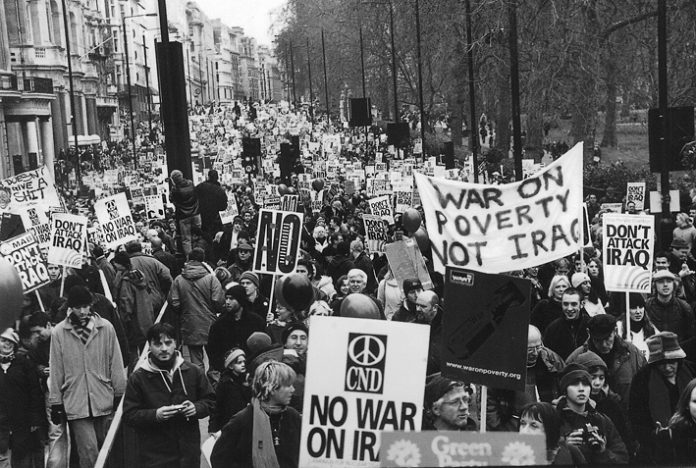
ALASTAIR Campbell yesterday defended ‘every single word’ of the notorious ‘sexed up’ dodgy dossier of September 2002, that was used by a desperate Blair government to try and gain support for attacking Iraq.
Campbell was giving evidence to the Chilcot Inquiry into the Iraq war, and it was put to him that the inquiry had already heard ‘how careful were officials to indicate that intelligence was sporadic and patchy, poor, and limited’.
To which Campbell replied: ‘. . . I don’t believe the dossier in any sense misrepresented the position. I think it was cautious, I think everybody involved was aware of the unprecedented nature of it and because of that took great care in the handling of it.
‘And let’s be absolutely frank, I don’t think we would be even having this exchange if it wasn’t for the controversy which subsequently ensued . . .’
The inquiry team also quoted from the Butler committee that ‘more weight was placed on the intelligence than it could bear’ and that ‘the language in the dossier gave the impression that there was fuller and firmer intelligence than was the case’.
‘The document set out a pretty broad-ranging case,’ said Campbell. ‘The media commentary at the time was that this was pretty conservative, it was very cautious, there was nothing explosive about it,’ he claimed.
But the Chilcot committee confronted Blair’s former aide with the headlines that appeared in the Evening Standard and other newspapers after the dossier was published, such as: ‘45 minutes from attack’, ‘Iraq could have nuclear bomb in a year’, ‘45 minutes to doom’ and ‘Saddam could strike in 45 minutes’.
Campbell said that these headlines were nothing to do with him and to the laughter of the audience said that he never sought to get headlines.
He was then questioned as to why he had not sought to correct these sensational headlines and admitted that he had not even contacted the press to point out that Saddam could not strike in 45 minutes and it was not a question of 45 minutes to doom.
Campbell said all he could do was ‘repeat himself’ that the JIC (Joint Intelligence Committee) ‘had to be happy with that document . . . I think the way the prime minister presented it to parliament was on the cautious side of things’.
But the committee repeatedly stressed that Blair’s own words spelt out that he had no doubt ‘the threat is current and serious’ and that he believed the assessed intelligence had established this ‘beyond doubt’.
It was also put to Campbell that the final draft of the ‘dodgy dossier’ had removed an intelligence assessment that Iraq was not capable of attacking London.
In the last session, Campbell was asked about the impact that the two million strong demonstration through London on the eve of the war made on himself and Blair.
He stated that he understood there was a great opposition to the war and he related how he had organised a group of Iraqi exiles to see Blair to engage with him and press that the war had to go ahead, despite the public opposition.
The former BBC journalist Andrew Gilligan, commenting on Campbell’s statement that he supported every word of the dodgy dossier, said that it was ‘quite an extraordinary thing to say, given that virtually every word of the dossier is wrong.’